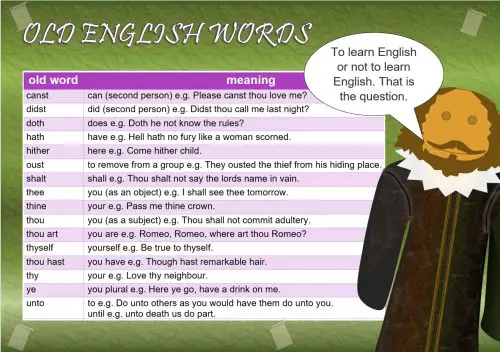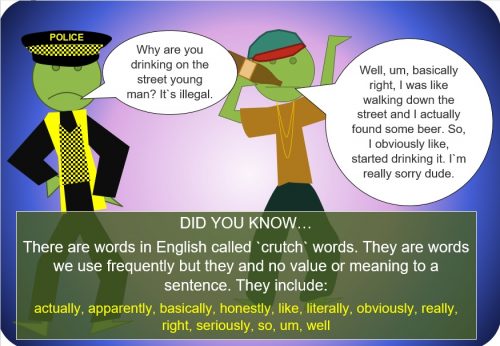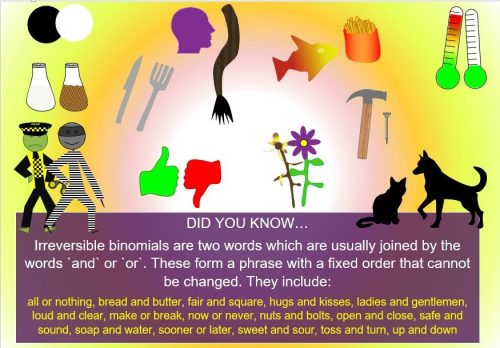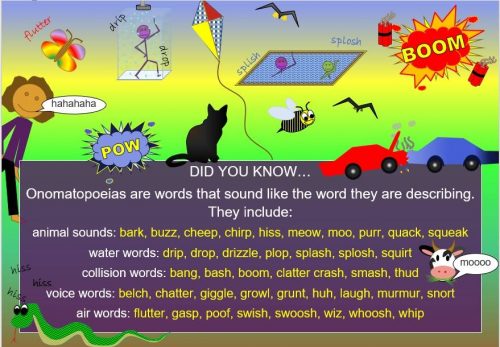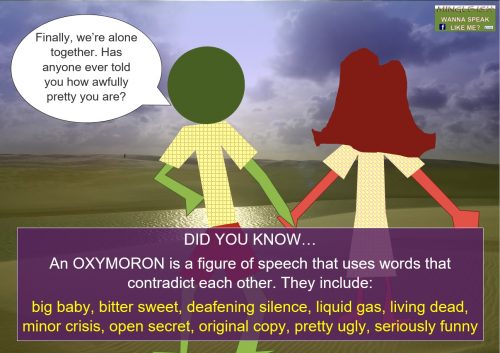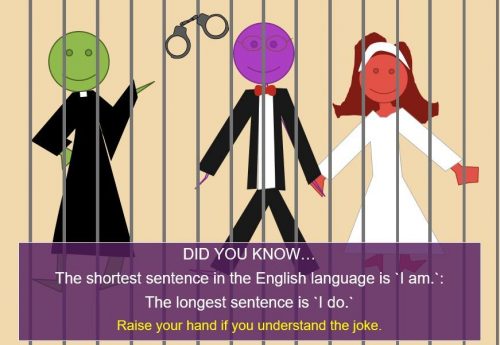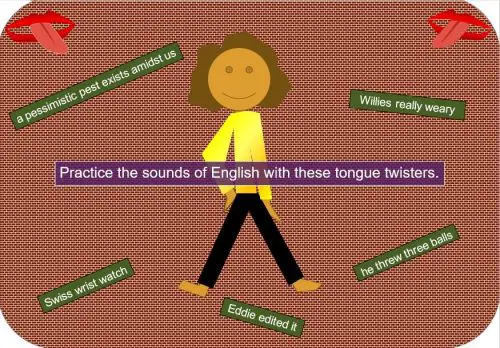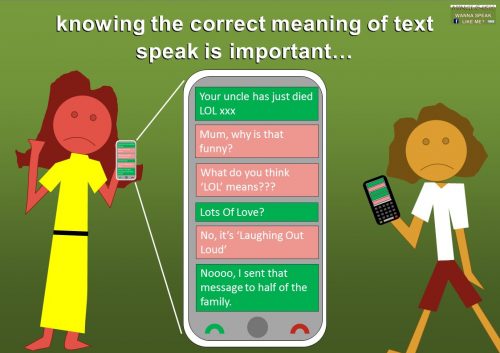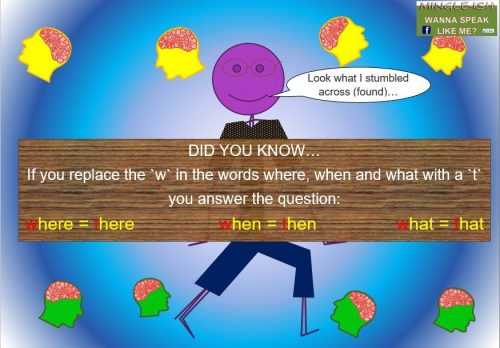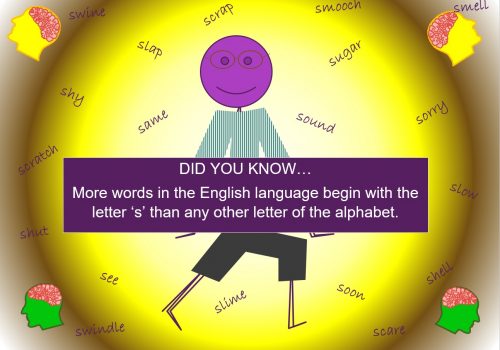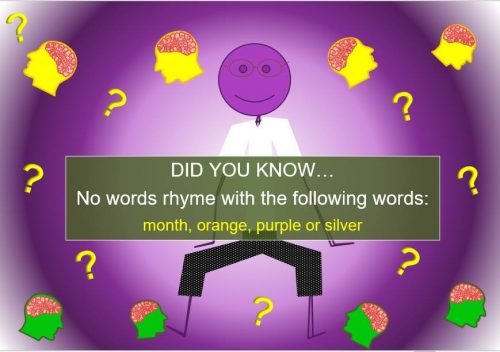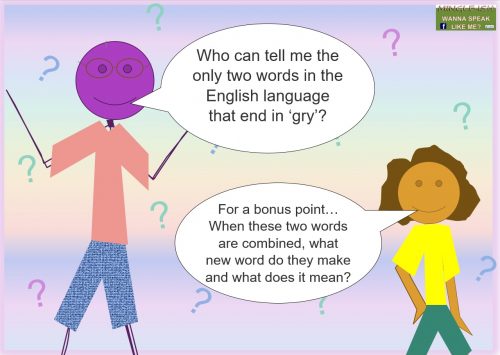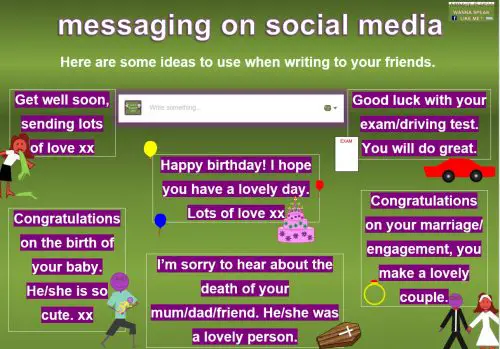Here are some weird and wonderful facts about the English language for you to impress your friends with.
old English words
- canst
meaning – can (second person)
example – Please canst thou love me? - didst
meaning – did (second person)
example – Didst thou call me last night? - doth
meaning – does
example – Doth he not know the rules? - hath
meaning – have
example – Hell hath no fury like a woman scorned. - hither
meaning – here
example – Come hither child. - oust
meaning – to remove from a group
example – They ousted the thief from his hiding place. - shalt
meaning – shall
example – Thou shalt not say the lords name in vain. - thee
meaning – you (as an object)
example – I shall see thee tomorrow. - thine
meaning – your
example – Pass me thine crown. - thou
meaning – you (as a subject)
example – Thou shall not commit adultery. - thou
meaning – art you are
example – Romeo, Romeo, where art thou Romeo? - thyself
meaning – yourself
example – Be true to thyself. - thou hast
meaning – you have
example – Though hast remarkable hair. - thy
meaning – your
example – Love thy neighbour. - ye
meaning – you plural
example – Here ye go, have a drink on me. - unto
meaning – to
example – Do unto others as you would have them do unto you.
meaning – until
example – unto death us do part.
crutch words
There are words in English called crutch words. They are words we use frequently but they and no value or meaning to a sentence.
They include:
- actually
- apparently
- basically
- honestly
- like
- literally
- obviously
- really
- right
- seriously
- so
- um
- well
irreversible binominals
Irreversible binomials are two words which are usually joined by the words `and` or `or`. These form a phrase with a fixed order that cannot be changed. They include:
- all or nothing
- bread and butter
- fair and square
- hugs and kisses
- ladies and gentlemen
- loud and clear
- make or break
- now or never
- nuts and bolts
- open and close
- safe and sound
- soap and water
- sooner or later
- sweet and sour
- toss and turn
- up and down
onomatopoeias
Onomatopoeias are words that sound like the word they are describing. They include:
- animal sounds – bark, buzz, cheep, chirp, hiss, meow, moo, purr, quack, squeak
- water words – drip, drop, drizzle, plop, splash, splosh, squirt
- collision words – bang, bash, boom, clatter crash, smash, thud
- voice words – belch, chatter, giggle, growl, grunt, huh, laugh, murmur, snort
- air words – flutter, gasp, poof, swish, swoosh, wiz, whoosh, whip
oxymorons
An OXYMORON is a figure of speech that uses words that contradict each other. They include:
- big baby
- bittersweet
- deafening silence
- liquid gas
- living dead
- minor crisis
- open secret
- original copy
- pretty ugly
- seriously funny
the shortest sentence in English
The shortest sentence in the English language is `I am’.
The longest sentence is `I do.`
tongue twisters
Practice the sounds of English with these tongue twisters.
- a pessimistic pest exists amidst us
- Eddie edited it
- he threw three balls
- Swiss wrist watch
- Willies really weary
text speak
knowing the correct meaning of text speak is important.
mum – Your uncle has just died LOL xxx
me – Mum, why is that funny?
me – What do you think ‘LOL’ means???
mum – Lots Of Love?
me – No, it’s ‘Laughing Out Loud’
mum – Noooo, I sent that message to half of the family.
did you know?
If you replace the `w` in the words where, when and what with a `t`, you answer the question:
- where = there
- when = then
- what = that
More words in the English language begin with the letter ‘s’ than any other letter of the alphabet.
No words rhyme with the following words:
- month
- orange
- purple
- silver
words ending in gry
Who can tell me the only two words in the English language that end in ‘gry’?
For a bonus point…
When these two words are combined, what new word do they make and what does it mean?
The two words are:
- hungry
- angry
If you combine these two words, you get the word ‘hangry’. Hangry means you are angry because you are hungry.
Here are some ideas to use when writing to your friends.
- Get well soon, sending lots of love xx
- Congratulations on the birth of your baby. He/she is so cute. xx
- Happy birthday! I hope you have a lovely day. Lots of love xx
- I’m sorry to hear about the death of your mum/dad/friend. He/she was a lovely person.
- Good luck with your exam/driving test. You will do great.
- Congratulations on your marriage/ engagement, you make a lovely couple.
